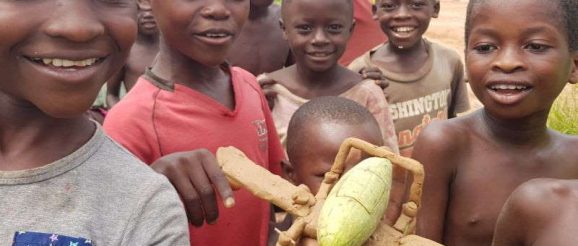Consultancy: Drones (UAVs/UAS/RPAs) Technical Specialist, 5 months, Remote, Office of Innovation – sUAS News – The Business of Drones

UNICEF works in some of the world’s toughest places, to reach the world’s most disadvantaged children. To save their lives. To defend their rights. To help them fulfill their potential.
Across 190 countries and territories, we work for every child, everywhere, every day, to build a better world for everyone.
And we never give up.
For every child, innovate…
UNICEF has a 70-year history of innovating for children. We believe that new approaches, partnerships and technologies that support realizing children’s rights are critical to improving their lives.
The Office of Innovation is a creative, interactive, and agile team in UNICEF. We sit at a unique intersection, where an organization that works on huge global issues meets the startup thinking, the technology, and the partners that turn this energy into scalable solutions.
UNICEF’s Office of Innovation creates opportunities for the world’s children by focusing on where new markets can meet their vital needs. We do this by:
The Office of Innovation specifically looks to form partnerships around frontier technologies (like drones and UAVs, blockchain, 21st century skills, urban technologies, new banking tools, wearables and sensors, or 3D-Printing) that exist at the intersection of $100 billion business markets and 1 billion person needs – and to identify how they can grow and scale profitably and inclusively.
How can you make a difference?
In coming years, drones will be fully incorporated into commercial airspace. Will we be ready? How can we use these emerging technologies to help children? UNICEF Innovation is looking at the future of drones (UAV/Ss, RPAs), for humanitarian response and development. Though they are a new technology, their potential use in imagery, connectivity and transport situations will be integral. Drones can be helpful, for example, in mudslides in humanitarian and refugee flooding situations, by bringing connectivity to disconnected areas and for transporting important medical supplies to hard-to-reach places.
UNICEF has identified drone technology and drone-based services as a means to strengthen and improve its work in global health and community resilience. The Office of Innovation, in collaboration with the UNICEF ICT Directorate, is supporting the organization to better understand these opportunities, address key considerations on the use of drones, and craft a practical way forward for UNICEF to globally leverage this technology in protecting and advancing the rights of children.
UNICEF has established implementation hubs to test drones for humanitarian and development applications. These hubs provide new platforms for data collection, stakeholder engagement and youth capacity building.
Through the UNICEF Venture Fund, UNICEF has invested in six drone startups developing open source software and hardware solutions to support the use of UAS in humanitarian use cases. These seed investments to entrepreneurs will accelerate the development of digital public goods in the drone technology sector. These digital public goods can be either the design and blueprints to build low-cost and long-endurance drones for the delivery of medical supplies under an open-source license, or open-source algorithms to model precipitation and floods that help to better identify households at risk. In collaboration with the DPG Alliance, UNICEF has launched an open source toolkit to make more accessible drone-related software, data, designs and content.
Your main responsibilities will be:
To qualify as an advocate for every child you will have…
*A first University Degree in a relevant field combined with 2 additional years of professional experience may be accepted in lieu of an Advanced University Degree.
For every Child, you demonstrate…
UNICEF’s values of Care, Respect, Integrity, Trust, and Accountability (CRITA)and core competencies in Communication, Working with People and Drive for Results.
The competencies required for this post are:
To view our competency framework, please visit here.
UNICEF is committed to diversity and inclusion within its workforce, and encourages all candidates, irrespective of gender, nationality, religious and ethnic backgrounds, including persons living with disabilities, to apply to become a part of the organization.
UNICEF has a zero-tolerance policy on conduct that is incompatible with the aims and objectives of the United Nations and UNICEF, including sexual exploitation and abuse, sexual harassment, abuse of authority and discrimination. UNICEF also adheres to strict child safeguarding principles. All selected candidates will be expected to adhere to these standards and principles and will therefore undergo rigorous reference and background checks. Background checks will include the verification of academic credential(s) and employment history. Selected candidates may be required to provide additional information to conduct a background check.
Payment details and further considerations
Remarks:
Only shortlisted candidates will be contacted and advance to the next stage of the selection process.
Individuals engaged under a consultancy or individual contract will not be considered “staff members” under the Staff Regulations and Rules of the United Nations and UNICEF’s policies and procedures, and will not be entitled to benefits provided therein (such as leave entitlements and medical insurance coverage). Their conditions of service will be governed by their contract and the General Conditions of Contracts for the Services of Consultants and Individual Contractors. Consultants and individual contractors are responsible for determining their tax liabilities and for the payment of any taxes and/or duties, in accordance with local or other applicable laws.
Apply here
